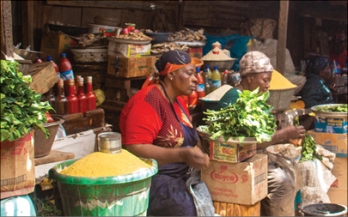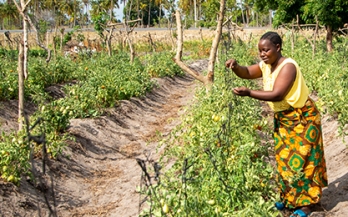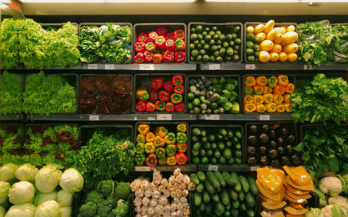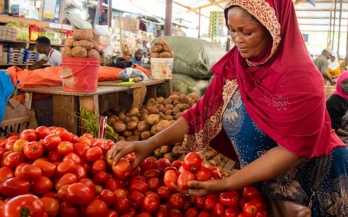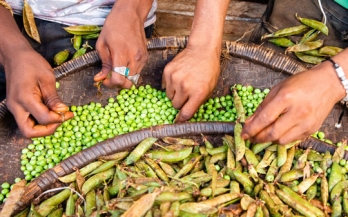This blog highlights findings related to gender from EatSafe's formative research. Women’s empowerment and gender equity are central to reducing the burden of foodborne illness and integral research, learning, and evaluation of food safety interventions.
The latest IPCC report marks a step change in recognising links between food and the climate crisis. Food systems, which are mentioned 350 times in the report, are already creaking under the pressure of multiple climate shocks, changing weather patterns, ecosystem collapse and degradation of land, soils and waterways.
2021 has marked a turning point for food safety in the global public discourse. The global COVID-19 pandemic has highlighted vulnerabilities in our food system, including the importance of food safety and its role in nutrition and health. We are starting to see the pressing need to establish capacity to support domestic food safety in low- and middle-income countries.
When we launched GAIN’s new Environment Strategy internally in March 2021, it quickly became clear that protecting the planet is a cause that carries huge significance for GAIN staff, for a whole host of different reasons. Some colleagues took inspiration from the natural beauty of the world around them, from the stunning savannahs of Tanzania and rolling highlands of Kenya through to the incredible diversity of India and the lakes and mountains of Geneva.
Invited by our partners at WWF, GAIN joined CARE, ICCCAD, Club of Rome & EAT to present the FoodForward consortium at COP26. This comes as part ofour collective commitment to continue working together, as former Action Track Chairs of the United Nations Food Systems Summit, to fix food systems within this decade.
In a pre-Covid-19 world, depression and anxiety were estimated to cost the global economy more than USD1 trillion per year in lost productivity. From recent discussions with companies on workplace wellbeing we notice a recurring theme: if mental health was emerging as a key focus area, it now most certainly is a priority for employers, and especially so as the pandemic continues to impact the wellbeing of millions of people around the globe.
I remember well the first Nutrition for Growth Summit in 2013 in London. I wrote the framing paper for that Summit: why should we invest in improving nutrition status? Answer: because 45% of under 3 mortality is linked to malnutrition.
After a year of planning, the UN Food Systems Summit is just days away. A catalyst for an extraordinary outpouring of energy and creativity over these past 12 months - hundreds of thousands of people from governments, civil society, business, and development agencies have participated in the preparations.
Pakistan is a lower-middle-income country with a population of more than 215 million, and the 5th most-populous country in the world. At the current growth rate of 1.8%, its population is expected to increase to around 255 million by 2030. Pakistan has one of the world’s highest rates of malnutrition among women and children.
As a nation, India joins over 125 countries that have embarked on coordinating efforts for inclusive, multistakeholder Food Systems Summit Dialogues to engage around the vision of the ‘people’s summit’. All over the world, countries have been holding – and in some cases continue to hold – national and sub-national dialogues to surface and prioritise needs and actions.
